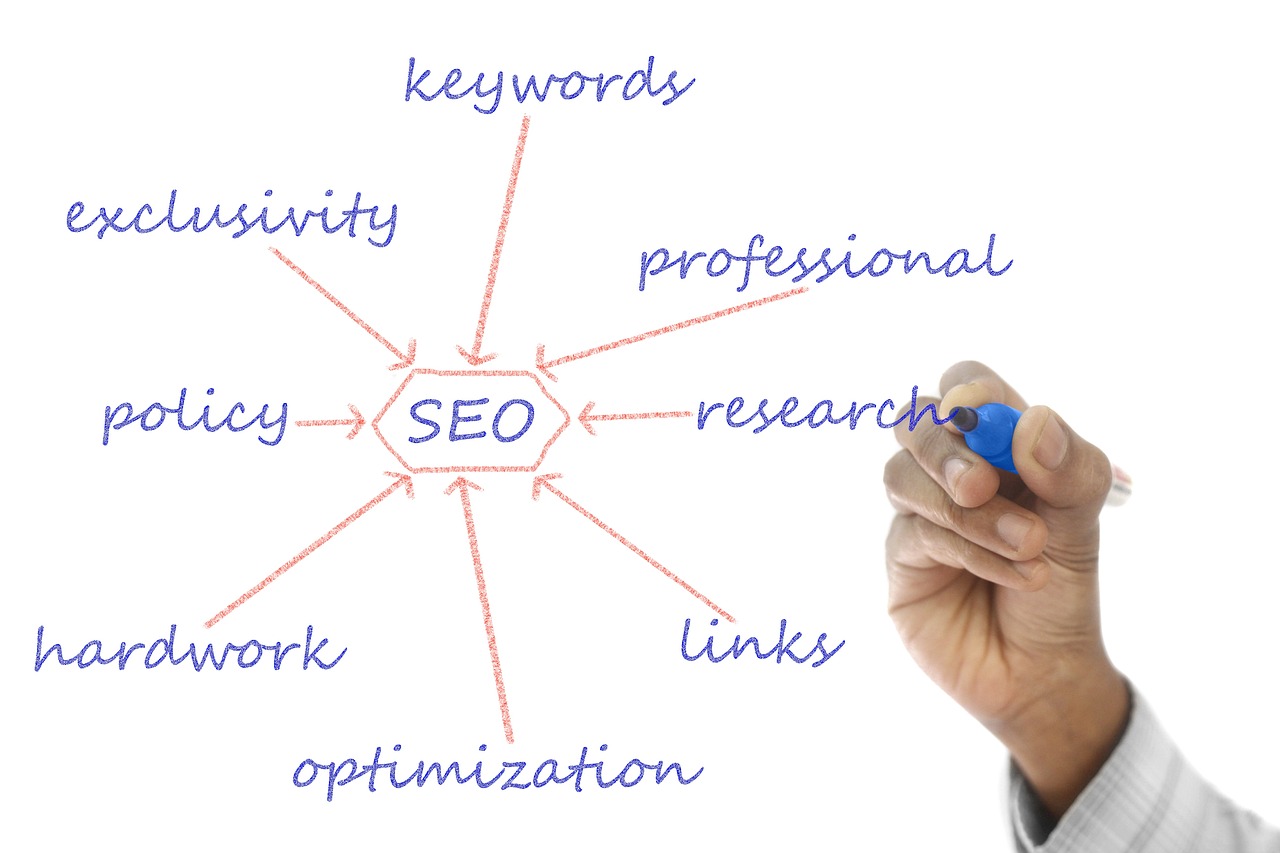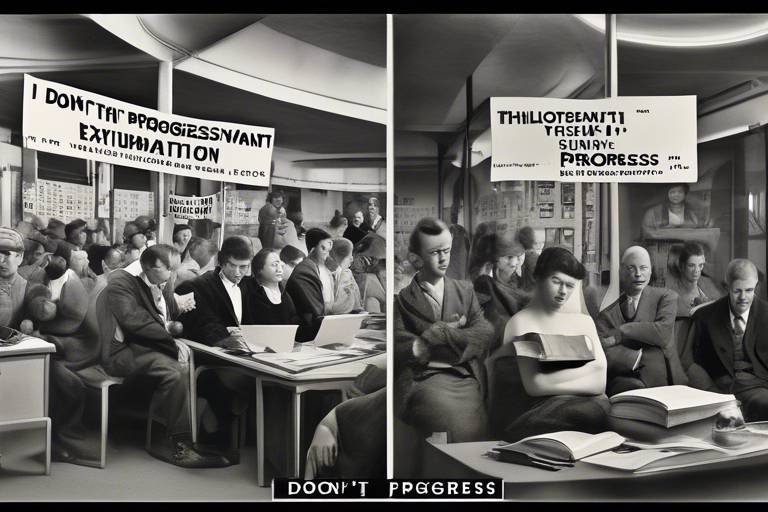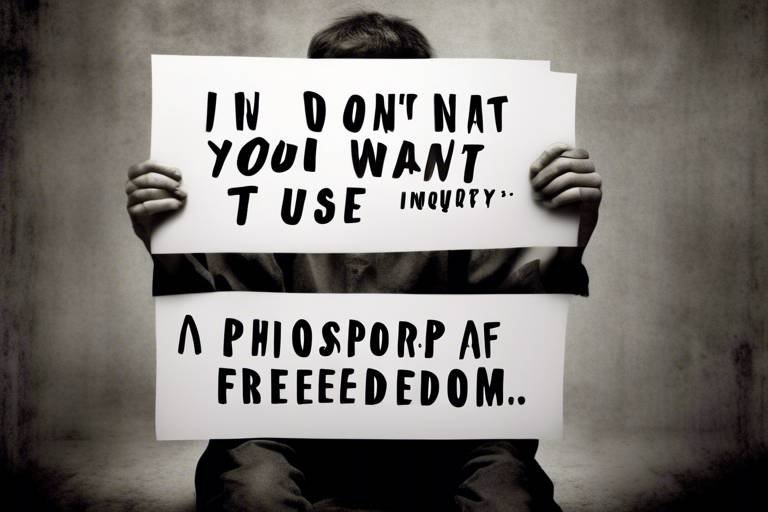Human Progress - A Philosophical Examination
Human progress is a concept that has intrigued philosophers, scientists, and thinkers for centuries. It embodies the idea that humanity is on a journey towards improvement and enlightenment, yet its definition is anything but straightforward. What does it truly mean to progress? Is it merely a matter of technological advancement, or does it encompass a broader spectrum of human experience, including moral, social, and environmental dimensions? As we embark on this exploration, we must consider not only the milestones we have achieved but also the implications these advancements carry for individuals and society as a whole.
Throughout history, the concept of progress has evolved significantly. In earlier times, it was often associated with the development of agriculture, the rise of civilizations, and the accumulation of knowledge. Today, however, we find ourselves grappling with the consequences of our rapid advancements, particularly in technology and globalization. As we stand on the shoulders of giants, we are compelled to ask: are we truly progressing, or are we simply moving forward without a clear direction? This philosophical examination will delve into the various interpretations of progress, the ethical dilemmas it raises, and the future trajectories that lie ahead.
At its core, progress can be defined as a forward movement toward a more advanced state. However, this definition is layered with complexity. Historically, progress has been celebrated as a hallmark of human achievement, a testament to our ability to innovate and improve our circumstances. Yet, as we peel back the layers, we discover that progress is not universally accepted as a positive force. For some, it is a double-edged sword, bringing both benefits and challenges.
In contemporary society, the notion of progress often intertwines with technological innovation. We live in an era where advancements in artificial intelligence, biotechnology, and communication have fundamentally altered our way of life. But with these changes come pressing questions: Are we sacrificing our privacy for convenience? Is the pursuit of technological progress leading to a loss of human connection? These questions compel us to rethink what it means to progress as a society.
To fully grasp the concept of progress, we must explore how different historical epochs have interpreted it. From the dawn of civilization to the present day, our understanding of advancement has undergone significant transformations. In ancient societies, progress was often measured by agricultural yields and military conquests. Fast forward to the Enlightenment, and we see a seismic shift where progress became synonymous with reason, science, and individual rights.
The Enlightenment period marked a pivotal moment in the philosophical discourse on progress. Thinkers like Immanuel Kant and Jean-Jacques Rousseau championed the idea that human beings could shape their destinies through reason and ethical considerations. They laid the groundwork for modern notions of progress, emphasizing that advancement should not only be about technological superiority but also about enhancing human dignity and rights.
Key figures of the Enlightenment, such as Kant and Rousseau, argued that progress is inherently tied to moral and ethical development. Kant believed in the concept of perpetual peace, envisioning a world where rational beings could coexist harmoniously. Rousseau, on the other hand, critiqued the inequalities brought about by civilization and called for a return to simpler, more egalitarian forms of living. Their ideas challenge us to reconsider the very foundation of progress and its implications for society.
While the Enlightenment celebrated progress, it also faced critiques regarding its Eurocentrism. Many non-Western perspectives were excluded from this narrative, raising questions about whose progress we are discussing. This exclusion highlights the need for a more inclusive understanding of advancement that recognizes diverse cultural contributions and experiences.
In today's discourse, progress is often viewed through the lenses of technology, globalization, and environmental sustainability. These modern interpretations prompt us to reevaluate what constitutes true advancement. As we navigate the complexities of the 21st century, we must consider the ethical implications of our actions and the responsibility we bear to future generations.
With great power comes great responsibility. As we push the boundaries of technology and innovation, we must confront the moral implications that accompany these advancements. The ethical dilemmas surrounding privacy, artificial intelligence, and socio-economic disparities challenge us to think critically about the consequences of our progress.
As technology evolves, ethical dilemmas arise concerning privacy, artificial intelligence, and the impact on employment and social structures. For instance, while AI has the potential to revolutionize industries, it also raises questions about job displacement and the ethical treatment of autonomous systems. How do we ensure that technological progress serves humanity rather than undermining our values?
The pursuit of progress often conflicts with environmental sustainability. As we strive for economic growth and technological advancement, we must reevaluate our priorities in the face of climate change. True progress should not come at the expense of our planet; instead, it should promote a harmonious relationship with the environment. This necessitates a shift in our understanding of what progress means in a world grappling with ecological crises.
Looking ahead, the potential trajectories of human progress are both exciting and daunting. Optimistic thinkers envision a future where technology and social structures create a utopia, emphasizing equity, sustainability, and global cooperation. However, the dystopian concerns of unchecked progress loom large, warning us of the potential pitfalls of inequality, environmental degradation, and a loss of human agency.
Imagine a world where technology is harnessed to eliminate poverty, where education is accessible to all, and where every individual has a voice in shaping their community. This vision of progress paints a picture of a harmonious society that prioritizes the well-being of its citizens and the planet. It is a hopeful narrative that encourages us to strive for a better future.
Conversely, the dystopian outlook serves as a cautionary tale. It warns of a future where the gap between the rich and the poor widens, where environmental degradation becomes irreversible, and where human agency is compromised by technological overreach. These concerns remind us that progress is not an automatic trajectory; it requires conscious effort and ethical considerations to ensure that we do not lose sight of our humanity in the pursuit of advancement.
- What is human progress?
Human progress refers to the advancement of society in various dimensions, including technology, morality, and social structures.
- How has the definition of progress changed over time?
The definition has evolved from a focus on material achievements to a broader understanding that includes ethical and environmental considerations.
- What are the ethical implications of technological advancements?
Technological advancements raise questions about privacy, job displacement, and the potential for inequality.
- Can progress be sustainable?
Yes, true progress can be sustainable if it prioritizes environmental health and social equity alongside economic growth.

The Concept of Progress
When we talk about progress, what exactly do we mean? The term has evolved significantly over the centuries, morphing from a simple notion of improvement to a complex, multifaceted concept that encompasses various dimensions of human existence. At its core, progress is often associated with the idea of moving forward, whether that be in technology, society, or individual capabilities. However, the definition can vary widely depending on cultural, historical, and philosophical contexts.
In ancient times, progress was frequently viewed through the lens of civilization and development. Societies believed that advancements in agriculture, architecture, and governance were indicators of progress. For instance, the transition from nomadic lifestyles to settled agricultural communities marked a significant leap in human development, allowing for the establishment of cities and complex social structures. Fast forward to the present, and we see that progress is often linked with scientific advancements and technological innovation. This shift reflects humanity's growing reliance on technology to solve problems and improve quality of life.
Moreover, the significance of progress extends beyond mere advancements in technology or social structures. It also encompasses the evolution of thought and philosophy. As societies progress, so too do their values and beliefs. For example, the rise of individual rights and freedoms can be seen as a hallmark of progress in modern societies, contrasting sharply with more collectivist or authoritarian approaches of the past. This evolution raises important questions: Is progress always a positive force? Can it lead to unintended consequences?
To better understand the concept of progress, let’s break it down into some key dimensions:
- Technological Progress: Innovations that enhance our capabilities, from the wheel to the internet.
- Social Progress: Changes in societal norms and values that promote equality and justice.
- Cultural Progress: The evolution of arts, literature, and cultural practices that reflect changing human experiences.
- Environmental Progress: Efforts to create sustainable practices that protect our planet for future generations.
As we explore these dimensions, it becomes clear that progress is not a linear path. It often resembles a winding road filled with both triumphs and setbacks. For instance, while technological advancements have greatly improved communication and access to information, they have also introduced challenges such as privacy concerns and the digital divide. This duality prompts us to reconsider what we truly value as progress. Is it merely the accumulation of knowledge and wealth, or should it also include the well-being of individuals and communities?
In conclusion, the concept of progress is rich and complex, shaped by historical contexts and philosophical inquiries. It challenges us to think critically about what it means to advance as a society. As we continue to navigate the waters of modernity, the question remains: Are we truly progressing, or are we merely moving forward without direction? The answers may vary, but the dialogue is essential for understanding our place in the ever-evolving tapestry of human existence.

Historical Perspectives
The journey of human progress is not merely a linear path; it is a rich tapestry woven through the ages, reflecting diverse interpretations and philosophies. Throughout history, different epochs have shaped our understanding of what progress truly means. From ancient civilizations to modern societies, the concept has evolved, influenced by cultural, political, and technological changes. In this exploration, we will delve into significant historical perspectives that have molded our current views on advancement.
One of the earliest frameworks for understanding progress can be traced back to the Greeks. Thinkers like Plato and Aristotle laid the groundwork for the idea that human beings could improve their conditions through reason and virtue. They believed that progress was not just about material wealth but also about the cultivation of the mind and spirit. This philosophical foundation would resonate through centuries, influencing various movements and ideologies.
Fast forward to the Renaissance, a period marked by a resurgence of interest in science, art, and humanism. This era celebrated the potential of human beings to shape their destinies, leading to groundbreaking advancements in various fields. The invention of the printing press, for instance, revolutionized the dissemination of knowledge, making information accessible to the masses. This shift not only sparked intellectual growth but also laid the groundwork for the Enlightenment, a pivotal moment in the history of human progress.
The Enlightenment period marked a significant shift in thought regarding progress, emphasizing reason, science, and individual rights as catalysts for societal advancement. Thinkers such as Kant and Rousseau argued that through rational thought and empirical evidence, humanity could achieve unprecedented heights. Their works underscored the belief that knowledge and education were essential for societal improvement, effectively setting the stage for modern democratic ideals.
During the Enlightenment, several key figures emerged, each contributing unique ideas about progress:
- Immanuel Kant: Advocated for the use of reason as the primary means for human advancement.
- Jean-Jacques Rousseau: Emphasized the importance of individual rights and the social contract in fostering a just society.
- Voltaire: Championed freedom of speech and religion, arguing that tolerance was essential for progress.
While the Enlightenment celebrated progress, it also faced critiques regarding its Eurocentrism and the exclusion of non-Western perspectives on development. Critics argue that the Enlightenment's focus on reason and individualism often disregarded the rich traditions and contributions of other cultures. This narrow view of progress has led to ongoing debates about the inclusivity of historical narratives and the need to recognize diverse pathways to advancement.
As we moved into the 19th and 20th centuries, the Industrial Revolution brought about a new understanding of progress, one deeply intertwined with technological advancements. Factories sprang up, cities expanded, and the pace of life quickened. However, this period also illuminated the darker sides of progress, such as labor exploitation and environmental degradation. The juxtaposition of these elements prompted thinkers like Marx to question the very nature of progress, suggesting that it often came at the expense of the working class.
Today, as we stand on the shoulders of these historical giants, our understanding of progress continues to evolve. The interplay between technology, culture, and ethics shapes our current discourse on what it means to advance as a society. Are we moving towards a more equitable future, or are we simply repeating the mistakes of the past? These questions remain at the forefront of our collective consciousness, urging us to reflect on the lessons learned from history as we navigate the complexities of modern existence.

The Enlightenment and Progress
The Enlightenment period, often referred to as the Age of Reason, was a transformative era that fundamentally reshaped how humanity viewed progress. Emerging in the late 17th and 18th centuries, this intellectual movement emphasized the power of human reason, scientific inquiry, and individual rights. Think of it as a grand awakening—a time when people began to question traditional authorities and dogmas, seeking instead to understand the world through observation and rational thought. This shift laid the groundwork for modern notions of progress, influencing not just philosophy, but also politics, science, and society at large.
At the heart of Enlightenment thought was the belief that through knowledge and education, humanity could improve itself and its circumstances. Thinkers like Immanuel Kant and Jean-Jacques Rousseau championed the idea that reason could lead to societal advancements. Kant famously urged individuals to "dare to know," advocating for the use of reason as a means to achieve enlightenment. His ideas about autonomy and moral law contributed significantly to modern concepts of human rights and ethical governance.
Rousseau, on the other hand, presented a more complex view of progress. While he acknowledged the potential of reason to improve society, he also warned about the dangers of civilization. In his view, the advancement of society often led to inequality and the corruption of natural human goodness. This tension between the potential benefits and the pitfalls of progress is a recurring theme in Enlightenment thought, prompting debates that continue to this day.
| Key Figures | Contributions |
|---|---|
| Immanuel Kant | Promoted the use of reason and autonomy; laid the foundation for modern ethics and human rights. |
| Jean-Jacques Rousseau | Critiqued civilization's impact on human nature; emphasized the importance of social contracts and collective will. |
However, while the Enlightenment celebrated the idea of progress, it also faced significant critiques. Many scholars argue that Enlightenment thought was inherently Eurocentric, often overlooking the contributions and perspectives of non-Western cultures. This exclusion raises important questions about whose narratives of progress are recognized and valued in the broader discourse. As we reflect on the Enlightenment, it becomes crucial to consider how its legacy shapes our understanding of progress today.
In essence, the Enlightenment serves as a double-edged sword in the narrative of human progress. It offers a robust framework for understanding advancement through reason and science, while simultaneously challenging us to confront the ethical and cultural implications of such progress. As we continue to navigate our modern world, the lessons of the Enlightenment remind us that progress is not merely a linear path forward; it is a complex journey filled with both promise and peril.
- What was the main idea of the Enlightenment? The Enlightenment emphasized reason, individual rights, and scientific inquiry as the keys to human progress.
- Who were the key figures of the Enlightenment? Notable figures include Immanuel Kant and Jean-Jacques Rousseau, who contributed significantly to modern philosophy and ethics.
- How did the Enlightenment influence modern society? Enlightenment ideas laid the groundwork for contemporary concepts of democracy, human rights, and scientific thought.
- What are some critiques of Enlightenment thought? Critics argue that it was Eurocentric and often excluded non-Western perspectives on progress and development.

Key Figures of the Enlightenment
The Enlightenment was a remarkable period that ushered in a wave of intellectual and philosophical advancement, fundamentally reshaping the way we perceive progress and human rights. Among the luminaries of this era, Immanuel Kant and Jean-Jacques Rousseau stand out as pivotal figures whose ideas continue to resonate today. Kant, often hailed as the father of modern philosophy, introduced the concept of autonomy, arguing that true enlightenment comes from individuals using their own reason without the guidance of another. His famous motto, "Sapere aude," or "Dare to know," encapsulates the spirit of the Enlightenment, urging people to think for themselves and challenge established norms.
On the other hand, Rousseau offered a contrasting perspective that emphasized the importance of community and the social contract. He believed that human beings are inherently good but are corrupted by society. Rousseau's ideas about education and the natural state of humanity sparked discussions on the balance between individual freedom and societal responsibility. His work laid the groundwork for modern democratic thought, influencing the French Revolution and the development of human rights.
These thinkers, along with others like Voltaire and John Locke, contributed to a rich tapestry of ideas that questioned traditional authority and championed the rights of individuals. Their collective efforts not only advanced philosophical discourse but also inspired movements that sought to promote equality and justice. To illustrate their contributions, we can look at the following table summarizing their key ideas:
| Philosopher | Key Idea | Impact |
|---|---|---|
| Immanuel Kant | Autonomy and Reason | Foundation of modern philosophy and ethics |
| Jean-Jacques Rousseau | The Social Contract | Influenced democratic ideals and education |
| Voltaire | Civil Liberties | Advocated for freedom of speech and religion |
| John Locke | Natural Rights | Influenced political philosophy and human rights |
The Enlightenment's legacy is profound; it set the stage for modern democracy, human rights, and scientific inquiry. The ideas propagated by these key figures challenged the status quo and ignited a passion for knowledge that transcended geographical and cultural boundaries. As we reflect on their contributions, it's essential to recognize how their thoughts on progress and human rights continue to shape our world today.
- What was the main goal of the Enlightenment?
The Enlightenment aimed to promote reason, individualism, and skepticism of authority, leading to advancements in science and philosophy. - How did Enlightenment thinkers influence modern democracy?
They emphasized the importance of individual rights and the social contract, which became foundational principles in democratic governance. - What are some criticisms of Enlightenment thought?
Critics argue that it often overlooked non-Western perspectives and sometimes perpetuated colonial attitudes.

Critiques of Enlightenment Thought
The Enlightenment, often heralded as the dawn of modernity, brought forth a wave of ideas that championed reason, science, and individual rights. However, this intellectual movement did not escape scrutiny. Critics argue that Enlightenment thought is deeply rooted in Eurocentrism, often sidelining non-Western philosophies and perspectives. This exclusion raises important questions: Who gets to define progress, and at what cost? The Enlightenment's focus on rationality and empirical evidence, while revolutionary, sometimes dismissed the value of emotional and spiritual dimensions inherent in human experience.
One of the most significant critiques revolves around the idea of universalism. Enlightenment thinkers like Kant posited that reason is a universal trait that could lead to a common understanding of human rights. Yet, this assumption often ignored the rich tapestry of cultural diversity that exists across the globe. For instance, indigenous philosophies and practices that emphasize harmony with nature and community well-being were frequently overlooked in favor of Western ideals of individualism and competition. This raises an important point: is progress truly universal, or is it merely a reflection of Western values?
Moreover, the Enlightenment's faith in progress as an unmitigated good has been challenged by historical events that reveal the darker sides of such advancements. The Industrial Revolution, a product of Enlightenment thought, brought about significant technological progress but also led to grave social inequalities and environmental degradation. The promise of progress often came at the expense of marginalized communities, who were left behind in the rush toward modernization. As we examine these critiques, it becomes clear that while the Enlightenment laid the groundwork for many of our modern values, it also created a framework that can be critiqued for its limitations and biases.
In essence, the critiques of Enlightenment thought serve as a reminder that progress is not a linear journey toward a singular goal. Rather, it is a complex and multifaceted process that must consider a broader array of voices and experiences. As we navigate the challenges of contemporary society, acknowledging these critiques can help us forge a more inclusive understanding of what it means to progress.
- What is the main critique of Enlightenment thought? Many critics argue that Enlightenment thought is Eurocentric and often ignores non-Western perspectives on progress and development.
- How did the Enlightenment influence modern ideas of progress? The Enlightenment emphasized reason, science, and individual rights, which laid the groundwork for contemporary notions of human rights and societal advancement.
- What are some negative consequences of Enlightenment ideals? While it promoted technological and social advancements, the Enlightenment also contributed to social inequalities and environmental issues, particularly during the Industrial Revolution.
- Can progress be universal? Critics argue that progress is not universal; it reflects specific cultural values, particularly those of Western societies, and often excludes diverse perspectives.

Modern Interpretations of Progress
In today's fast-paced world, the concept of progress has taken on new dimensions, evolving far beyond the linear narratives of the past. Modern interpretations often intertwine with advancements in technology, the complexities of globalization, and the pressing need for environmental sustainability. But what do these interpretations really mean for us as a society? Are we truly advancing, or are we merely racing down a path that may lead to unforeseen consequences?
One of the most striking aspects of modern progress is its dual nature. On one hand, we have remarkable technological breakthroughs that promise to enhance our lives. From the rise of artificial intelligence to the proliferation of the internet, these advancements have reshaped how we communicate, work, and even think. However, the question remains: at what cost? As we embrace these innovations, we must also grapple with the ethical dilemmas they present. Issues such as privacy, data security, and the potential for job displacement loom large in our collective consciousness.
Furthermore, globalization has transformed the way we perceive progress. In a world that feels increasingly interconnected, the notion of progress is no longer confined to individual nations. It encompasses a global perspective, where advancements in one part of the world can have ripple effects elsewhere. For instance, consider how technological innovations in developed nations can lead to economic growth in developing countries. Yet, this interconnectedness also raises concerns about inequality and exploitation, as the benefits of progress are not always evenly distributed.
Equally important is the growing recognition of environmental sustainability as a crucial component of modern progress. As we face the stark realities of climate change, many are beginning to question whether our current trajectory is truly sustainable. This has led to a re-evaluation of what it means to progress. Are we advancing if our actions compromise the planet for future generations? Increasingly, voices advocating for a more sustainable approach to progress are gaining traction, emphasizing the need for renewable energy, conservation, and responsible consumption.
In light of these complexities, it becomes clear that the modern interpretation of progress is not a straightforward narrative. It is a multifaceted concept that requires us to engage in critical thinking and open dialogue. As we navigate this landscape, we must ask ourselves: What kind of progress do we want to pursue? Is it one that prioritizes technological advancement at the expense of our environment and ethical considerations, or can we forge a path that harmonizes innovation with sustainability and equity?
Ultimately, the future of human progress depends on our ability to balance these competing interests. It challenges us to redefine our values and priorities in a rapidly changing world. In this context, progress is not merely a destination but a journey—one that requires thoughtful navigation through the complexities of modern life.
- What is the modern interpretation of progress? Modern interpretations of progress encompass advancements in technology, globalization, and environmental sustainability, emphasizing a more holistic view of advancement.
- How does globalization affect our understanding of progress? Globalization creates interconnectedness, where advancements in one region can influence others, but it also raises concerns about inequality and exploitation.
- Why is environmental sustainability important in discussions of progress? Environmental sustainability is crucial because it ensures that advancements do not compromise the health of our planet for future generations.
- What ethical dilemmas arise from technological advancements? Ethical dilemmas include issues related to privacy, job displacement, and the impact of artificial intelligence on society.

The Ethics of Progress
As we stand on the precipice of unprecedented advancements in technology and society, the question of ethics in progress becomes not just relevant, but essential. What does it mean to move forward as a civilization? Is progress inherently good, or does it come with strings attached? These questions stir a cauldron of debate among philosophers, ethicists, and everyday people alike. With each leap in technology—from artificial intelligence to genetic engineering—we must grapple with the moral implications of our choices. Are we, as a society, prepared to shoulder the responsibilities that accompany our innovations?
Consider the realm of technology. The rise of artificial intelligence (AI) offers incredible potential, yet it also raises significant ethical dilemmas. For instance, how do we ensure that AI systems are designed to respect privacy and human rights? As we integrate these technologies into our daily lives, we must ask ourselves: who is responsible when AI makes a mistake? The answers are not straightforward, and they require a careful balancing act between innovation and ethical considerations.
Furthermore, the rapid pace of technological advancement has led to concerns about employment. Automation threatens to displace millions of workers, leading to economic disparities. Are we prepared to confront the social ramifications of such changes? It is crucial that we not only celebrate progress but also address the potential fallout it may cause. We must create frameworks that ensure fair transitions for those affected by technological shifts, thereby aligning our advancements with the principles of equity and justice.
Next, we turn our gaze to the environment. The drive for progress often clashes with the urgent need for sustainability. As we pursue economic growth and technological prowess, we must ask ourselves: at what cost? Climate change looms large, and the consequences of unchecked progress could be catastrophic. It is essential to integrate environmental considerations into our definitions of advancement. We must prioritize sustainable practices that protect our planet for future generations. This brings us to a critical point: how do we redefine progress to include ecological health alongside technological and economic growth?
To illustrate the ethical landscape of progress, consider the following table that outlines the dual nature of advancements:
| Advancement | Positive Impacts | Ethical Concerns |
|---|---|---|
| Artificial Intelligence | Increased efficiency, improved decision-making | Privacy issues, job displacement |
| Genetic Engineering | Potential cures for diseases, enhanced agricultural yields | Ethical implications of 'designer babies' |
| Renewable Energy | Reduction in carbon emissions, sustainable resources | Impact on wildlife, resource allocation |
Ultimately, the ethics of progress requires a multifaceted approach. It is not merely about what we can achieve, but also about what we should achieve. As we navigate this complex terrain, we must engage in open dialogues that include diverse perspectives, especially from those who are often marginalized in discussions about technological advancements. By doing so, we can foster a more inclusive understanding of progress that aligns with our shared human values.
- What is the main ethical concern regarding technological advancements?
The main concern revolves around privacy, job displacement, and the potential misuse of technology. - How can we ensure that progress is sustainable?
By integrating environmental considerations into our definitions of progress and prioritizing sustainable practices. - Why is it important to include diverse perspectives in discussions about progress?
Including diverse perspectives ensures that the consequences of advancements are equitably addressed and benefits are shared across society.

Technological Advancements and Ethics
As we stand on the precipice of a technological revolution, the ethical implications of our advancements are becoming increasingly complex and pressing. With every leap forward, we are faced with questions that challenge our moral compass. For instance, consider the rise of artificial intelligence. While AI has the potential to revolutionize industries and improve our daily lives, it also raises significant concerns regarding privacy, autonomy, and accountability. Who is responsible when an AI system makes a mistake? Is it the programmer, the user, or the machine itself? These are not just philosophical musings; they are real dilemmas that require thoughtful consideration.
Moreover, the rapid pace of technological change often outstrips our ability to adapt our ethical frameworks. Take the field of biotechnology, for instance. The ability to edit genes and potentially eradicate diseases is a remarkable achievement. However, this power comes with the weighty responsibility of ensuring that such technologies are used ethically. Are we prepared to navigate the moral landscape of designer babies, where the line between treatment and enhancement becomes blurred? The ethical concerns surrounding these advancements are profound and deserve our attention.
In addition to individual dilemmas, we must also consider the broader societal impacts of technological advancements. As automation becomes more prevalent, the future of work is being redefined. While some argue that technology will create new job opportunities, others fear that it will lead to widespread unemployment and exacerbate existing inequalities. The ethical challenge lies in ensuring that the benefits of technological progress are distributed fairly across society. This necessitates a robust dialogue about the responsibilities of corporations and governments in managing these transitions.
To further illustrate the ethical landscape surrounding technological advancements, consider the following table that outlines some key ethical dilemmas and their implications:
| Technology | Ethical Dilemma | Implications |
|---|---|---|
| Artificial Intelligence | Accountability for errors | Potential for harm and loss of trust |
| Biotechnology | Gene editing ethics | Designer babies and moral boundaries |
| Automation | Job displacement | Economic inequality and social unrest |
As we navigate these challenges, it is crucial for us to engage in open dialogues about technology's role in our lives. Ethical considerations should not be an afterthought; they must be woven into the fabric of technological development. This means involving ethicists, technologists, policymakers, and the public in discussions about the trajectory of our advancements. By doing so, we can strive to create a future where technology serves humanity, rather than undermines it.
In conclusion, the intersection of technological advancements and ethics is a dynamic and evolving landscape. As we continue to innovate, the responsibility to ensure that our creations align with our values rests on our shoulders. We must remain vigilant and proactive in addressing the ethical implications of our actions, ensuring that progress does not come at the cost of our humanity.
- What are some ethical concerns regarding artificial intelligence?
Ethical concerns include accountability for mistakes, privacy issues, and potential biases in decision-making. - How does biotechnology challenge our ethical frameworks?
Biotechnology raises questions about gene editing, designer babies, and the moral implications of altering human genetics. - What impact does automation have on employment?
Automation can lead to job displacement, which may exacerbate economic inequality and create social unrest.

Environmental Considerations
As we stride forward in the quest for human progress, it's essential to pause and reflect on the environmental consequences of our advancements. The narrative of progress has often been intertwined with the exploitation of natural resources, leading to significant ecological challenges. We find ourselves at a crossroads where the pursuit of innovation clashes with the need for sustainability. This tension raises critical questions: Can we truly call it progress if it comes at the expense of our planet?
Consider this: every technological breakthrough, from industrialization to digitalization, has had its environmental footprint. The burning of fossil fuels has powered our machines, but it has also led to air pollution and climate change. The creation of plastic has revolutionized packaging and convenience, yet it has resulted in oceans filled with waste. These examples illustrate a fundamental paradox: our advancements often create new problems that require even more innovation to solve.
Moreover, the concept of progress is evolving. In the past, it was primarily measured by economic growth and technological achievements. Today, however, many thinkers argue that true progress must also encompass ecological health and social equity. This shift in perspective invites us to redefine what it means to advance as a society. Are we prepared to embrace a model of progress that prioritizes the well-being of our planet and its inhabitants?
To further explore this idea, we can categorize the environmental considerations of progress into several key areas:
- Resource Depletion: The relentless extraction of natural resources can lead to scarcity and ecological imbalance.
- Climate Change: Industrial activities contribute significantly to greenhouse gas emissions, resulting in global warming and extreme weather patterns.
- Loss of Biodiversity: Urbanization and deforestation threaten countless species, destabilizing ecosystems that are vital for our survival.
It's crucial to recognize that these challenges are not insurmountable. Innovative solutions are emerging that align technological advancement with environmental stewardship. For instance, renewable energy sources such as solar and wind power offer sustainable alternatives to fossil fuels. Additionally, practices like sustainable agriculture and circular economy models can help mitigate the negative impacts of industrialization.
As we navigate this complex landscape, the role of policy and public awareness becomes increasingly significant. Governments and organizations must prioritize environmental considerations in their frameworks for progress. Public engagement and grassroots movements can drive change by advocating for policies that promote sustainability and protect our natural resources.
Ultimately, the future of human progress hinges on our ability to harmonize our technological aspirations with the health of our planet. We must ask ourselves: Are we willing to redefine progress in a way that respects and nurtures our environment? The answer to this question will determine not just the legacy we leave behind but also the very survival of future generations.
- What is the relationship between human progress and environmental sustainability?
Human progress should ideally encompass advancements that do not harm the environment. The challenge lies in finding ways to innovate while preserving ecological balance. - How can technology contribute to environmental sustainability?
Technology can play a crucial role in sustainability through renewable energy solutions, waste reduction techniques, and efficient resource management practices. - What are some examples of sustainable practices?
Examples include recycling, using biodegradable materials, adopting renewable energy sources, and implementing sustainable agricultural practices.

The Future of Human Progress
As we stand on the precipice of a new era, the future of human progress is a topic that ignites both excitement and trepidation. With the rapid advancement of technology and the increasing interconnectedness of our global society, we must ask ourselves: where are we headed? Will our journey lead us to a brighter, more equitable future, or are we barreling towards a dystopian reality? Each possibility presents a unique set of challenges and opportunities that we must navigate with care.
On one hand, many visionaries and thinkers are optimistic about the prospects of human progress. They foresee a future where technology acts as a bridge, connecting people across cultures and fostering collaboration. Imagine a world where innovations in renewable energy eliminate our reliance on fossil fuels, drastically reducing our carbon footprint and combating climate change. This utopian vision emphasizes principles of equity, sustainability, and global cooperation, creating a society where advancements benefit all, not just a privileged few.
However, this idealistic view is met with a contrasting perspective that warns of potential dystopian outcomes. As we embrace new technologies, we must remain vigilant about the risks they pose. Unchecked progress can lead to widening inequalities, where the rich get richer and the poor are left behind. The rise of automation and artificial intelligence, while promising efficiency, also raises alarming questions about job displacement and the erosion of human agency. As we integrate these technologies into our lives, we must ask ourselves: at what cost?
To navigate these uncertain waters, it is crucial to engage in thoughtful discourse about the ethical implications of our advancements. We must consider how our choices today will shape the world of tomorrow. For instance, the development of artificial intelligence should be guided by principles that prioritize human welfare, privacy, and dignity. As we harness the power of these technologies, we must ensure they serve to enhance, rather than diminish, our humanity.
Furthermore, we need to rethink our definition of progress. Is it merely about technological advancements, or should it also encompass social and environmental dimensions? A more holistic approach to progress might involve redefining success to include quality of life, environmental health, and social justice. This shift in perspective could lead us to a more sustainable and inclusive future.
In conclusion, the future of human progress is a complex tapestry woven from threads of hope and caution. As we move forward, it is essential to strike a balance between embracing innovation and addressing the ethical challenges that accompany it. By fostering a culture of responsibility and inclusivity, we can work towards a future that reflects our highest aspirations, rather than our deepest fears.
- What are the main challenges facing human progress today? The main challenges include technological inequality, environmental degradation, and ethical dilemmas related to advancements in AI and biotechnology.
- How can we ensure that progress benefits everyone? By prioritizing equity and inclusivity in policy-making, and by promoting sustainable practices that consider the well-being of all communities.
- What role does ethics play in the future of human progress? Ethics is crucial in guiding the development and implementation of new technologies, ensuring they are used responsibly and for the benefit of society.

Utopian Visions
When we think about the future, the idea of a utopia often dances in our minds like a shimmering mirage, enticing us with promises of harmony, prosperity, and equality. Imagine a world where technology and social structures converge to create an environment where everyone thrives. This vision isn't merely a fanciful dream; it reflects the aspirations of many forward-thinking individuals who believe that we can harness our advancements for the greater good. Utopian thinkers argue that by prioritizing sustainability, equity, and global cooperation, we can build a future that transcends the challenges we face today.
At the heart of these utopian visions lies the belief that technology, when used responsibly, can be a powerful ally in solving some of humanity's most pressing issues. For instance, renewable energy sources like solar and wind power could replace fossil fuels, drastically reducing our carbon footprint. Imagine cities powered by clean energy, where air pollution is a thing of the past, and our children can breathe fresh air. Furthermore, advancements in artificial intelligence and automation could lead to a significant reduction in labor, allowing people to focus on creativity and innovation rather than mundane tasks. This shift could foster a society where individuals pursue their passions rather than being shackled to jobs for survival.
Moreover, a utopian future envisions a world where social equity is not just an aspiration but a reality. In this ideal society, resources are distributed fairly, ensuring that everyone has access to essential services such as healthcare, education, and housing. The elimination of poverty and inequality would pave the way for a more cohesive and collaborative society. Imagine a world where children from all backgrounds receive the same quality education, empowering them to reach their full potential. This is not just a dream; it is a possibility if we work together towards a common goal.
However, it's essential to recognize that these utopian visions come with their own set of challenges and ethical considerations. As we strive for a better future, we must ask ourselves critical questions: How do we ensure that technological advancements benefit everyone, rather than just a select few? What safeguards can we put in place to prevent the misuse of technology? These questions are crucial as we navigate the complexities of progress.
In summary, the utopian visions of our future are not mere fantasies; they are achievable goals that require collective effort. By embracing sustainability, equity, and cooperation, we can create a world where everyone has the opportunity to thrive. The path to this utopia may be fraught with challenges, but the potential rewards—an equitable, peaceful, and prosperous society—are worth the journey. As we look to the future, let us remain hopeful and committed to making these visions a reality.
- What is a utopia? A utopia is an imagined place or state of things in which everything is perfect, often characterized by ideal social, legal, and political systems.
- Can technology really lead us to a utopian society? Yes, when used responsibly, technology has the potential to solve many societal issues and improve the quality of life for everyone.
- What are some challenges to achieving a utopian vision? Challenges include ensuring equitable access to resources, preventing the misuse of technology, and addressing ethical concerns related to advancements.

Dystopian Concerns
The notion of progress often brings with it a sense of hope and excitement, but lurking beneath this optimism are that cannot be ignored. As we accelerate into an era defined by rapid technological advancements and societal shifts, many thinkers warn us about the potential consequences of unchecked progress. Imagine a world where our innovations, instead of liberating us, bind us tighter in a web of inequality and environmental chaos. It's a chilling thought, but one that deserves our attention.
One of the most pressing concerns is the widening gap between the haves and the have-nots. As technology continues to evolve, it often benefits those who already have access to resources, leaving marginalized communities further behind. This disparity can lead to a society where wealth and opportunity are concentrated in the hands of a few, while the majority struggle to keep up. In this scenario, progress becomes a privilege rather than a universal right, creating a deeply divided world.
Moreover, the rise of artificial intelligence and automation raises serious questions about employment and human agency. As machines become capable of performing tasks traditionally done by humans, we face the risk of widespread unemployment. What happens when the jobs we once relied on disappear? The answer is not just economic instability; it could lead to a loss of purpose and identity for many individuals. The very essence of what it means to be human—our ability to create, to work, and to contribute—could be undermined by our own inventions.
Environmental degradation is another critical aspect of this dystopian narrative. As we pursue technological progress, we often do so at the expense of our planet. The relentless quest for growth has led to severe consequences, such as climate change, pollution, and loss of biodiversity. These environmental crises threaten not only our current way of life but also the future of generations to come. In a world where the environment is in peril, our advancements may become our downfall.
In light of these concerns, it becomes essential to ask ourselves: What kind of progress are we truly after? Is it worth achieving if it comes at such a high cost? The answers may not be straightforward, but they are crucial for guiding our future. As we navigate these complex issues, we must strive for a balance that prioritizes ethical considerations alongside technological advancements.
To better understand the implications of our choices, let's take a look at some key dystopian scenarios that could arise from our current trajectory:
| Dystopian Scenario | Potential Consequences |
|---|---|
| Widening Inequality | Increased social unrest, loss of trust in institutions, and a divided society. |
| Job Displacement | High unemployment rates, loss of personal identity, and economic instability. |
| Environmental Collapse | Severe climate events, loss of natural resources, and threats to human survival. |
As we ponder these dystopian concerns, it becomes clear that we must approach progress with caution and responsibility. The choices we make today will shape the world of tomorrow. By fostering discussions around ethics, equity, and sustainability, we can work towards a future that embraces progress without sacrificing our humanity.
- What are the main concerns regarding dystopian futures? Dystopian futures often involve issues such as inequality, job displacement, and environmental degradation.
- How does technology contribute to these concerns? Technological advancements can exacerbate inequalities, lead to unemployment, and harm the environment if not managed responsibly.
- What can be done to mitigate these risks? Emphasizing ethical considerations, promoting equitable access to technology, and prioritizing sustainability are crucial steps.
Frequently Asked Questions
- What is the definition of human progress?
Human progress refers to the advancements made by society in various fields, including technology, science, and social structures. It embodies the idea of improving the quality of life and enhancing our understanding of the world. Over time, the meaning of progress has evolved, reflecting changes in cultural values and societal needs.
- How did historical perspectives shape our understanding of progress?
Different historical epochs have offered unique interpretations of progress, influenced by key thinkers and movements. For instance, the Enlightenment period emphasized reason and individual rights, which laid the groundwork for modern notions of advancement. However, critiques of this period highlight the exclusion of non-Western perspectives, reminding us that progress is not a one-size-fits-all concept.
- What are the ethical implications of technological advancements?
As technology continues to evolve, it raises significant ethical dilemmas, particularly concerning privacy, artificial intelligence, and the implications for employment. These advancements challenge us to consider our responsibilities and the potential consequences of our innovations on society and individual lives.
- How does environmental sustainability relate to human progress?
The pursuit of progress often clashes with environmental sustainability, prompting a reevaluation of what true advancement means. As we face climate change and ecological degradation, it becomes essential to find a balance between technological growth and the health of our planet.
- What are some optimistic views on the future of human progress?
Some thinkers envision a future where advancements in technology and social structures lead to a utopia characterized by equity, sustainability, and global cooperation. This perspective highlights the potential for a more harmonious existence, where everyone benefits from the fruits of progress.
- What are the dystopian concerns regarding future progress?
Conversely, there are warnings about potential dystopian outcomes if progress is unchecked. These concerns include rising inequality, environmental destruction, and the erosion of individual freedoms. Such scenarios urge us to critically assess the direction of our advancements and the values that guide them.



















